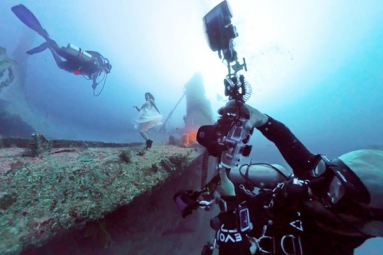New Species Of Jurassic-Age Hybodont Shark Discovered In Rajasthan
September 16, 2021 12:47
(Image source from: Twitter.com/PIBJaipur)
The team of the Geological Survey of India (GSI) have traced the teeth of the new species of Hybodont Shark which is of the Jurrasic age. They have been reportedly found for the first time in Jaisalmer of Rajasthan. An official statement was released by the Mines Ministry of India and they called it a rare discovery. The teeth represents that the species is named as Strophodusjaisalmerensis by the research team. All these findings are being published in the journal named Historical Biology in August 2021 which is the fourth issue. Prof. Dr. Sunil Bajpai, Head of the Department, Department of Earth Sciences, Indian Institute of Technology, Roorkee played a crucial role in the study.
Senior Geologist Shri Krishna Kumar said that the Hybodont Sharks lived from Jurassic rocks before 160-168 million years ago in Rajasthan's Jaisalmer. The Strophodus was traced for the first time in Japan Thailand and Asia. This finding will mark an important milestone and opens new window in the study of Jurassic vertebrate fossils in Rajasthan around Jaisalmer.
"In a rare discovery, teeth of new species of hybodont shark of Jurassic age have been reported for the first time from Jaisalmer. Discovery marks an important milestone in the study of Jurassic vertebrate fossils in the Jaisalmer region of Rajasthan" told PIB Rajasthan.
In a rare discovery, teeth of new species of hybodont shark of Jurassic age have been reported for the first time from Jaisalmer
— PIB in Rajasthan (@PIBJaipur) September 15, 2021
Discovery marks an important milestone in the study of Jurassic vertebrate fossils in the Jaisalmer region of Rajasthan
Read: https://t.co/HNgWQHMfl2 pic.twitter.com/Dh2PxOEfEr
Hybodonts is a rare group of sharks which is also a dominant group of fish that lived during the early Jurassic times. Hybodont Sharks saw a decline during the mid of Jurassic times and they became extinct 65 million years ago. These rare species are included in the Sharkreferences.com which is an international platform that is operating along with the International Union for Conservation of Nature (IUCN), Species Survival Commission, and Germany.



















